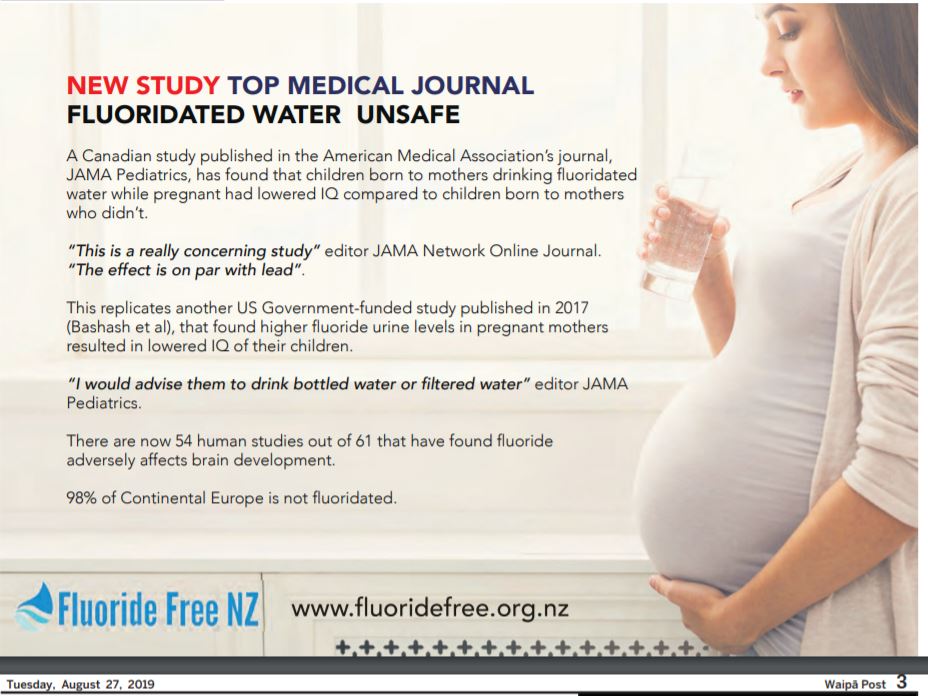Fluoridation hot topic around council table
By Bethany Rolston
The issue of water fluoridation came up for discussion around the council table last Tuesday.
Water fluoridation is the controlled addition of fluoride to a public water supply to reduce tooth decay.
The decision whether or not to fluoridate currently sits with local councils.
However, there is a bill in Parliament awaiting a second reading that aims to shift decision making to district health boards (DHBs).
It would effectively make fluoridation mandatory as the DHBs are required to carry out the Ministry of Health (MoH) policy and the councils would be required to do what the DHB dictates.
Waipa does not currently fluoridate, but that could change if the fluoridation bill is passed.
Kane Titchener, a Te Awamutu resident and anti-fluoridation activist, made a presentation at the council’s service delivery committee.
He asked the council to “immediately rescind their support of the LGNZ position to let the Director General of Health, MoH or DHBs take control of the fluoridation decision-making”.
“Waipa District Council has allowed an undemocratic situation to arise,” Kane says.“We urgently have to do something about it.”
Kane spoke about a new controversial study out last week in US medical journal JAMA Pediatrics.
The study found pregnant women who drank fluoridated water had babies with a lower IQ.
It followed 601 Canadian children from six major cities born between 2008 and 2012, 41 percent of which lived in communities supplied with fluoridated water.
Data was analysed between March 2017 and January 2019 and found maternal exposure to higher levels of fluoride during pregnancy was associated with lower IQ scores in children aged 3 to 4 years old.
“These findings indicate the possible need to reduce fluoride intake during pregnancy,” its authors concluded.
Kane said the research made for an even more urgent case that the control should be in the hands of local councils.
“You can repair teeth but you can’t repair a child’s IQ,” he said.
Mayor Jim Mylchreest said the power was in the MoH’s hands.
“They are the ones that provide the technical advice to LGNZ and to the individual councils whether or not to fluoridate.
“Now with the change in legislation they’ll have the power to make fluoridation compulsory or not. It seems to me the pressure — from your perspective — needs to go onto the MoH,” he said.
Councillor Hazel Barnes said the council should remove its support of the DHB’s position.
She said the DHB’s focus needed to be on providing a dental care programme throughout the region.
Councillor Clare St Pierre said she agreed.
“I’d like to see this council make it clear our preference is dental care programmes rather than fluoridating the water supply. We should draw attention to these studies and ask them to justify why they wouldn’t protect the IQ of those unborn children.”
Mr Mylchreest said it was important to do more research before taking further steps, and the service delivery committee wasn’t the place to make the decision.
“It’s critical we get both sides of the debate before we make that call. What risks are we balancing here?”
The MoH told the Waipa Post it would not be changing its guidelines in light of the new research.
“There is a large body of international scientific evidence regarding the safety, efficacy and cost-effectiveness of community water fluoridation,” a spokesperson said.
“The position of the MoH and the international health authorities which have endorsed community water fluoridation is not based on any single study.
*This is the advertisement by Fluoride Free NZ published in the same edition as the above article:

